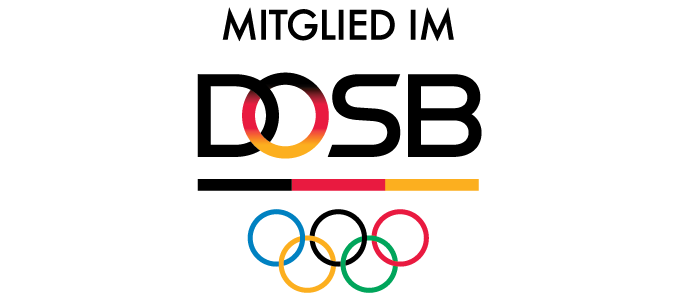Im Rahmen der ersten Box Lacrosse Weltmeisterschaft für Damen und dem heutigen Tag der Mentalen Gesundheit hat die Torhüterin der Damen Box Natio Romina Erhardt dem Weltverband ein sehr persönliches und gleichzeitig wichtiges Interview zum Thema mentale Gesundheit und Sport gegeben. Die originale Artikel ist HIER verfügbar und im Folgenden in englischer Originalsprache wiedergegeben.
Ihr habt selbst mentale Probleme im oder außerhalb des Sports? Wir möchten hier auf die von Romina erwähnten Verein Wir fuer Yannic e.V. hinweisen, der Hilfestellungen und Beratungsangebote bietet.
‘This game saved me’ – Germany’s Romina Erhardt shares the power of lacrosse on World Mental Health Day
October 10 is World Mental Health Day. Germany goalkeeper Romina Erhardt shared her thoughts with World Lacrosse on the sport’s role in her life and her mental health journey in the past year. Erhardt played at the 2024 World Lacrosse Box Championships in Utica and has previously represented Germany at the women’s championship. The following story contains mature themes about mental health and depression.
I never believed in higher powers, spirits, or rituals myself but I always loved the history, spiritual meaning and power of lacrosse. In February, I would never have imagined what it would be like in September to walk off the field after the sixth-place game in tears of relief and overwhelming emotion.
Back then, I was in the darkest place I’d ever been. I couldn’t even get out of bed two days before the final tryout camp for the box championships and just a week before the national championships. Physically, emotionally — I was empty. I had no drive to eat, to move. I didn’t recognize myself.
For months, something had been changing. I’d gone from being a generally happy, energetic person who sometimes overthought things, to someone full of self-doubt and anxiety while seeing rivals in everyone and everything. My mind was on a constant loop. I’d always believed my mindset was my greatest strength. Now, it felt like my biggest weakness.
Yes, mental health issues exist. I teach my kids the importance of mindfulness, but thought it would never hit me. Not me, the one who can drop cliffs into deep powder, skate downhill at 50 kilometers per hour, or catapult over a 4-meter bar. I didn’t have mental health problems. I was just exhausted and overtrained. That’s what I told myself.
But it took a complete breakdown during the national championships to realize something was wrong. Standing in the goal, surrounded by my friends, doing what I loved, I felt nothing. I didn’t want to be there. I didn’t want to be around anyone. That’s when I finally opened up to two friends. One had gone through depression herself; the other was a psychologist. They urged me to ask for help.
That was the first step in the right direction after nearly a year of running in circles and harming relationships with people who truly mattered to me with my self-doubt, jealousy, and a sense of rivalry. Admitting I needed help was the hardest step, but there were many more to come.
I began researching depression, its causes, treatments, and other athletes who had faced the same struggle. That’s when I found the website Wir für Yannic e.V., created in memory of rower Yannic Corinth, who tragically took his life after his depression went unrecognized and untreated.
I made a promise to Yannic: I wouldn’t let my family and friends be in that position. I would fight my way back into life. My goal: in six months, I would play the best game of my life, representing Germany at the World Lacrosse Box Championship in September.
I was on a mission. With the help of the Olympic Training Center in Munich and LMU University, I got into treatment immediately — something that usually takes months. Time I didn’t have. I threw myself into every tool available: medication, brain stimulation, therapy, mindfulness, nutrition, supplements, and sports. Whatever it took.
But this wasn’t a perfect, smooth journey back. Far from it. The medication dulled my emotions and numbed my drive. Some days, I could run for hours without feeling exhaustion, only to crash when my battery finally died. I stopped overthinking daily worries, but became overinvested in a few emotional triggers. I was no longer paralyzed by doubt, but I also started acting without thinking. It was a wild, unpredictable rodeo, full of ups and downs, self-doubt and uncertainty. But at the same time, I was slowly finding myself. It was like discovering the instruction manual for a machine I had been trying to operate through trial and error for years.
I wish I had found that manual earlier. I wish I hadn’t hurt the people who mattered most to me. But now, at least, I had it. I was learning. And I was determined to do better.
Even as the box championships approached, I was unsure if I should go. It was my dream, the goal I’d been working toward for six long months. But was I ready? Could I give my best for three weeks? Would it be fair to take that spot when I still felt fragile, not at my best? Would I be taking the opportunity away from a friend, someone who was ready? Could I be the teammate I needed to be?
Two days before departure, I read my diary from March – the entry where I promised to fight my way back into life. That’s when I made my decision: I would go. I would play for myself and for the friends cheering from home. I would give my absolute best.
The day before the first game, that resolve was tested. The coaches told me I wouldn’t be playing every game, and I wouldn’t be starting in the opener. Combined with other stress factors, the emotional strain nearly broke me. But this time, I had the tools to handle it. I took time for myself to focus and to mentally prepare. Whenever my thoughts started wandering off during the games, I looked down at my shoes where I had written “STOP worrying – WIN – focus on What’s Important Now.”
I was on a mission. With the help of the Olympic Training Center in Munich and LMU University, I got into treatment immediately — something that usually takes months. Time I didn’t have. I threw myself into every tool available: medication, brain stimulation, therapy, mindfulness, nutrition, supplements, and sports. Whatever it took.
But this wasn’t a perfect, smooth journey back. Far from it. The medication dulled my emotions and numbed my drive. Some days, I could run for hours without feeling exhaustion, only to crash when my battery finally died. I stopped overthinking daily worries, but became overinvested in a few emotional triggers. I was no longer paralyzed by doubt, but I also started acting without thinking. It was a wild, unpredictable rodeo, full of ups and downs, self-doubt and uncertainty. But at the same time, I was slowly finding myself. It was like discovering the instruction manual for a machine I had been trying to operate through trial and error for years.
I wish I had found that manual earlier. I wish I hadn’t hurt the people who mattered most to me. But now, at least, I had it. I was learning. And I was determined to do better.
Even as the box championships approached, I was unsure if I should go. It was my dream, the goal I’d been working toward for six long months. But was I ready? Could I give my best for three weeks? Would it be fair to take that spot when I still felt fragile, not at my best? Would I be taking the opportunity away from a friend, someone who was ready? Could I be the teammate I needed to be?
Two days before departure, I read my diary from March – the entry where I promised to fight my way back into life. That’s when I made my decision: I would go. I would play for myself and for the friends cheering from home. I would give my absolute best.
The day before the first game, that resolve was tested. The coaches told me I wouldn’t be playing every game, and I wouldn’t be starting in the opener. Combined with other stress factors, the emotional strain nearly broke me. But this time, I had the tools to handle it. I took time for myself to focus and to mentally prepare. Whenever my thoughts started wandering off during the games, I looked down at my shoes where I had written “STOP worrying – WIN – focus on What’s Important Now.”
We faced tough losses against Australia and England, and didn’t achieve our goal of bringing home a medal. After our final game, I sat outside the locker room, alone. The tears came, first out of frustration, then relief. With every tear, the weight of the last six months lifted off my shoulders. The pressure, the fear – they were gone.
This game — lacrosse — saved me. It truly is the game of my life.





